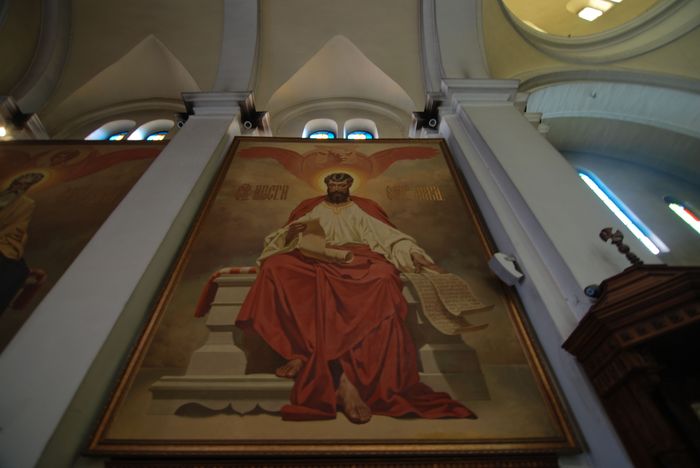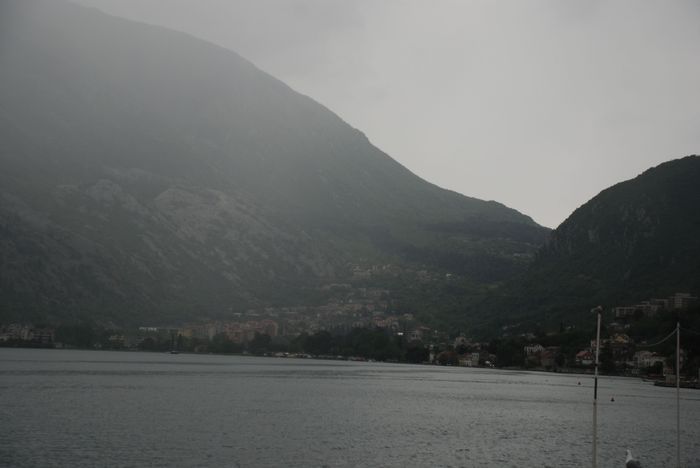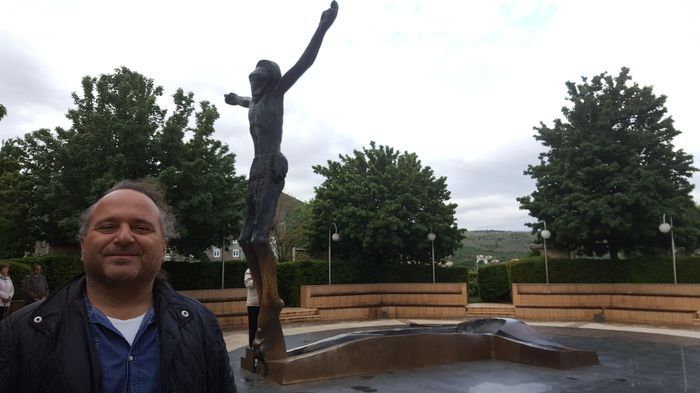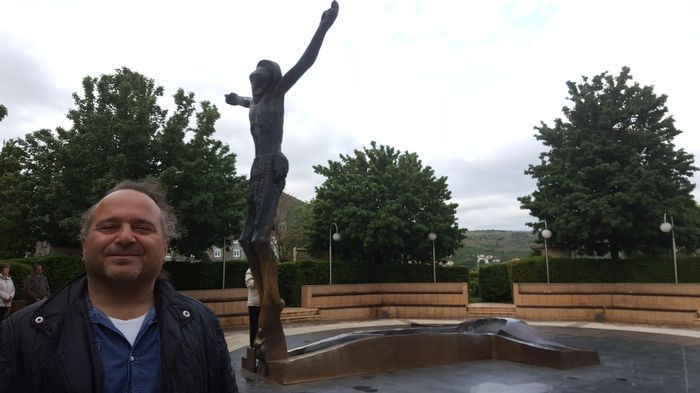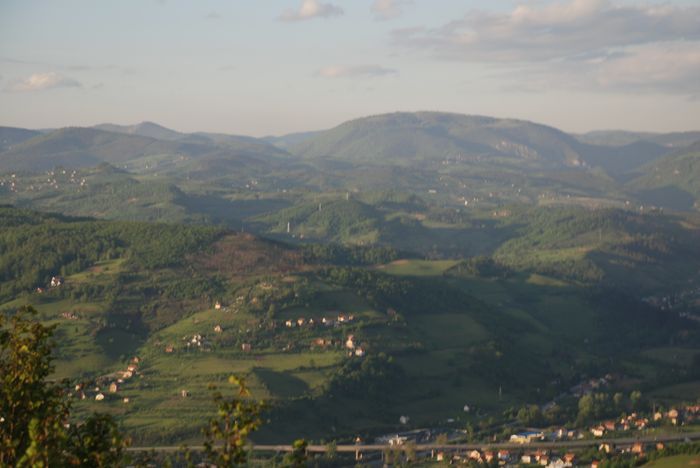The man who had taken the letter into the Arsenal came back in a quarter of an hour, and told us that the effendi was over at the Marine—a building adjacent. I sent it in by a messenger, who presently returned, and said that Sali Pacha wished to see me. I was accordingly ushered in, the ceremony of taking off my shoes being dispensed with, and found this gentleman, who has an important post in the Turkish navy, sitting on a divan at the end of a large room, looking on to the Golden Horn, and swinging the string of beads to which I have before alluded. To my delight he spoke English perfectly, and was well acquainted with our metropolis. We had an agreeable chat for a few minutes, on comparison between London and Stamboul; and then he took charge of my letter, telling me that the effendi was at Smyrna, but that he would take my address, and I might calculate on its being safely delivered.
So that the document was at last, to a certain extent, on its right mission; which, but for this gentleman’s courtesy, I do not suppose it would ever have been. The trouble I had in getting rid of it may show the difficulty of presenting a Turkish letter of introduction. Stampa subsequently told me that it was a wonder how anything in the way of publicity or correspondence at Constantinople was managed at all, with streets having no names, and hundreds of people the same. He said that a post delivery was unknown. If the people did not go after their letters they never got them ; but that sometimes, even under these circumstances, they got somebody else’s, which appeared to answer just as well. Amongst the Franks this is all excellently managed. There is a letter box, both for the Austrian and French mails; besides our own steamers. I believe the Austrian despatch is the quickest, but the police in that empire have an ugly knack of opening all the letters that go through their hands.
Resident at Constantinople
That evening a few of my kind English friends, resident at Constantinople, collected in a snug little house, on the bold hill beyond the large burying ground at Pera, and gave me a dinner—an honest English dinner, of joint and pudding, and goodly beer. It was a pleasant meeting, so far from home guided istanbul tours.
It was capital to hear make the headlands over the Golden Horn echo again, through the open windows, with a fine old English sea-ballad, and laugh with such heartiness, at the latest London jokes, that his amiable wife told me afterwards she had never known him so inclined to leave the East and return again; so much had we stirred up his old home feelings by songs and stories. Even ‘‘Jeannette and Jeannot” and “When other lips” came out bran spick-and-span new ; and a scene from “Box and Cox” played extempore, with dreadful interpolations and deficiencies, was pronounced so fine a thing, that I wonder, upon the strength of the applause, the performers did not, from that moment, renounce all other pursuits but the drama. Then we had small speeches, and homely toasts; not dismal conventional affairs, but little heartfelt bits that came well into such companionship ; and be sure that there were many in England to whose health and happiness we drank that night, three thousand miles away. And when another guest arrived late, and told us, on diplomatic authority, that the Sultan had determined not to give up the poor Hungarian people who had come to him for shelter, there was such a thoroughbred British cheer, that I think that if the Emperor of Russia had heard it, it would have knocked him completely over, powerful gentleman as he is.
